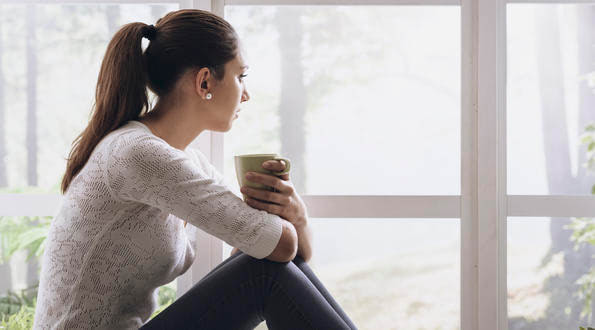Coronavirus: Advice for Students Coping with Isolation

#Coronavirus (COVID-19) has changed our lives in ways we could never have imagined. It’s like living in the plot of some apocalyptic movie. But it’s very real.
In order to combat the virus, the government is ramping up the restrictions on daily life. And that has included the decision to close all schools, colleges and universities (though many universities had already made the decision to close and switch to online learning).
Now, being told to stay at home and not go to school might seem like a dream scenario. But in fact, being forced to isolate and not being allowed to go out and enjoy the things you love doing and see your friends can have significant impact on your wellbeing.
So, here’s our top advice for staying well – both physically and emotionally – and coping with isolation. We hope this helps you get through the next few weeks or months…
Look After Your Physical Health
It’s vital that you follow the Government’s advice to prevent catching and spreading Coronavirus:
- Wash your hands with soap and water – for at least 20 seconds – as often as you can, especially when you get home or when you get into school. If soap and water are not available, use hand sanitizer gel
- Do not touch your face if your hands are not clean
- If you need to cough or sneeze, cover your mouth with a tissue or cough into the crook of your elbow, not into your hands. Put any used tissues in the bin and then wash your hands
- Avoid going out as much as possible. Restrictions are being put in place by the Government; follow these and only go out for emergency reasons

If you are worried about whether you might have Coronavirus, here are the symptoms:
- A continuous cough
- A high temperature (can be checked with a thermometer or if you feel hot to touch on your back or chest)
If you have these symptoms, try not to panic. Most young people – unless they have underlying symptoms will recover from the illness by resting, taking paracetamol (if they are not allergic to it) and drinking plenty of water.
However, if you feel your symptoms are getting worse and you cannot cope with them at home, either you or your parent/guardian should call 111. They will advise you on what to do.
For full advice on staying healthy during this time, please see the NHS’ dedicated Coronavirus website.
Know Why You’re Isolating
First things first, it’s important to recognize why you’re isolating and to take the appropriate advice. If you’re isolating because you have symptoms associated with coronavirus COVID-19, then be sure to self-isolate for a minimum of 7 days.
If you are living with other people then you/they should stay home in isolation for a total of 14 days from the day that the first person reported symptoms. This will help to protect others in the community from contracting coronavirus.
If no-one at home is reporting symptoms then do please continue to follow government advice and socially distance from others. This means avoiding gatherings of multiple people, even if those people do not report any symptoms.
Get Into a Routine
With everything moving so fast and advice changing all the time, it can feel like you don’t have any control over your life and that can lead to anxiety and stress.
Setting yourself a daily routine whilst in isolation can help you feel more in control of your own situation and reduce anxiety. Set regular waking, eating and bedtimes, and schedule time each day to do exercise, to study and to Facetime with family and friends.
Be Gentle to Yourself and Others
The chances are you are not isolating alone – with many people forced to give up work or work from home, or isolating due to poor health, it may be the case that you have your whole family stuck indoors, which brings with it its own challenges and a sense of cabin fever.
Remember to be patient with each other and to have open discussion about how best to allow for some uninterrupted time alone, as well as time for you all to be together. Having positive conversations about how best to allow each other space whilst in isolation will help mitigate a lot of frustration and arguing further down the line.
Avoid The News
If you are suffering from anxiety over Coronavirus, then don’t spend your time constantly refreshing news and social media apps as this will just feed your anxiety. If you need to know what’s going on, only use trusted sources of information and keep to set times for checking in on the news:
Practice Mindfulness
Mindfulness is a mind-body exercise approach to help people manage their thoughts and live in the present moment, and the practice comes in all shapes and sizes. You don’t need to be able to meditate for an hour at a time in order to experience the benefits of mindfulness, rather, mindfulness can be practiced in 5 minutes! Try some of these exercises for size:
- Try to eat a meal at the table, with no distraction, taking the time to experience every bite, and savour every taste
- Try opening the window or going into the garden for 3 minutes and taking some long, deep, deliberate breaths of the fresh air, taking the time to feel the flow of breath
- Try keeping a gratitude diary – every day stop for 5 minutes to think about some of the things you are truly grateful for
Taking time to be in the present moment is a great exercise to train our attention, and is a fantastic tool to have during times where we feel stressed and are more likely to let our thoughts wander into overdrive.
Keep Active
Physical fitness has a huge impact on mental wellbeing. It can help you release any tension and stress physically built up in your muscles; it can provide a distraction from any negative thoughts and the endorphins released from getting your heart rate up will make you feel better and give you more energy.
Just because we are in self-isolation, doesn’t mean you can’t keep active. At the moment, people are still being allowed to go out for walks and jogs – keeping in line with rules around social distancing – so that can be a good thing to do.
If you can’t go out at all, then getting in the garden for a game of catch or keepie-uppie is good enough. If not, there are thousands of workout videos on Youtube you can do in your bedroom. You can even get your family involved to make it fun!
Eat Well
As with exercise, eating a healthy diet will improve not only your physical wellbeing (which will be handy should you fall ill), but will improve your mental wellbeing too.
Focus on eating a balanced diet with plenty of wholegrain foods such as brown pasta and rice, eggs, nuts and fruit and veg. This will give you plenty of nutrients and lots of energy.
Avoid overeating high-sugar foods like chocolate and sweets. They will give you energy for a while but have zero nutrients and the sugar crash will make you feel rubbish. We’re not saying you can’t have a treat, but it’s all about balance.
Be Aware the Signs of Mental Health Conditions
Isolation, particularly in the wake of coronavirus, can trigger or exacerbate mental health issues such as anxiety, depression and – with all the advice about germ spreading and handwashing – OCDs.
It’s good to be aware of these mental health conditions so that you can recognise the symptoms in yourself and others. And if you do feel you are getting the symptoms of a mental health illness, tell someone you trust and get the help you need.
Stay Connected as Much as Possible
We are lucky to be living in an era when you don’t have to be in the same room as someone to see them. Make sure you schedule regular contact with your friends and family, especially those who you are particularly anxious about, like elderly grandparents.
It’s also important to speak with your parents and immediate family about the virus. If you are feeling anxious, tell the people close to you. And the same goes for others – if you think someone is struggling, reach out to them and talk.
Continue to Study
School’s out… and could well be out for a long time. That has meant GCSE, A-Level and their Scottish equivalents are cancelled.
But that doesn’t mean you can’t continue to study. Many universities have switched to distance learning to provide students with the lectures and contact time they need, and schools are likely to offer the same for students still at home.
If you need some motivation, you’ll find plenty of it on Youtube and Instagram:
Continuing to study will not only help with the boredom of being at home, it will help you stay connected to your normal life and your friends, plus will serve as a reminder that one day things will go back to normal.
If your school/college isn’t providing digital learning, then you could take this time to do some online courses. In fact, it could be a great time to learn some new skills – that you can use to impress future employers or uni admissions tutors.
You can also use your downtime to do some really thorough uni research, using the tools right here on Whatuni. Check out uni profiles, read course descriptions, and scope out some of the 200,000 student reviews we have on our site. They’ll keep you occupied for a while!
Try to Have Fun
Being stuck indoors all the time isn’t ideal. To combat the boredom, try to have as much fun as possible and use this time to connect with your family or the people you live with.
Turn off the TV and play a board game, get out into the garden or use this time to have a good old clear out (which can be surprisingly fun and good for your mental wellbeing!)
And yes… you can use your isolation to get through all those amazing boxsets you’d never have got the chance to watch otherwise. Enjoy!
Watching the Coronavirus pandemic unfold over the past few months has been truly awful and having our lives put on hold is something most of us never imagined would happen.
But just remember… it won’t be forever. Life will go back to normal and we will be able to go out to the cinema, go out for a meal and go on holiday again. And you are not alone in this, we’re all in it together.
Good luck and stay safe!












Responses